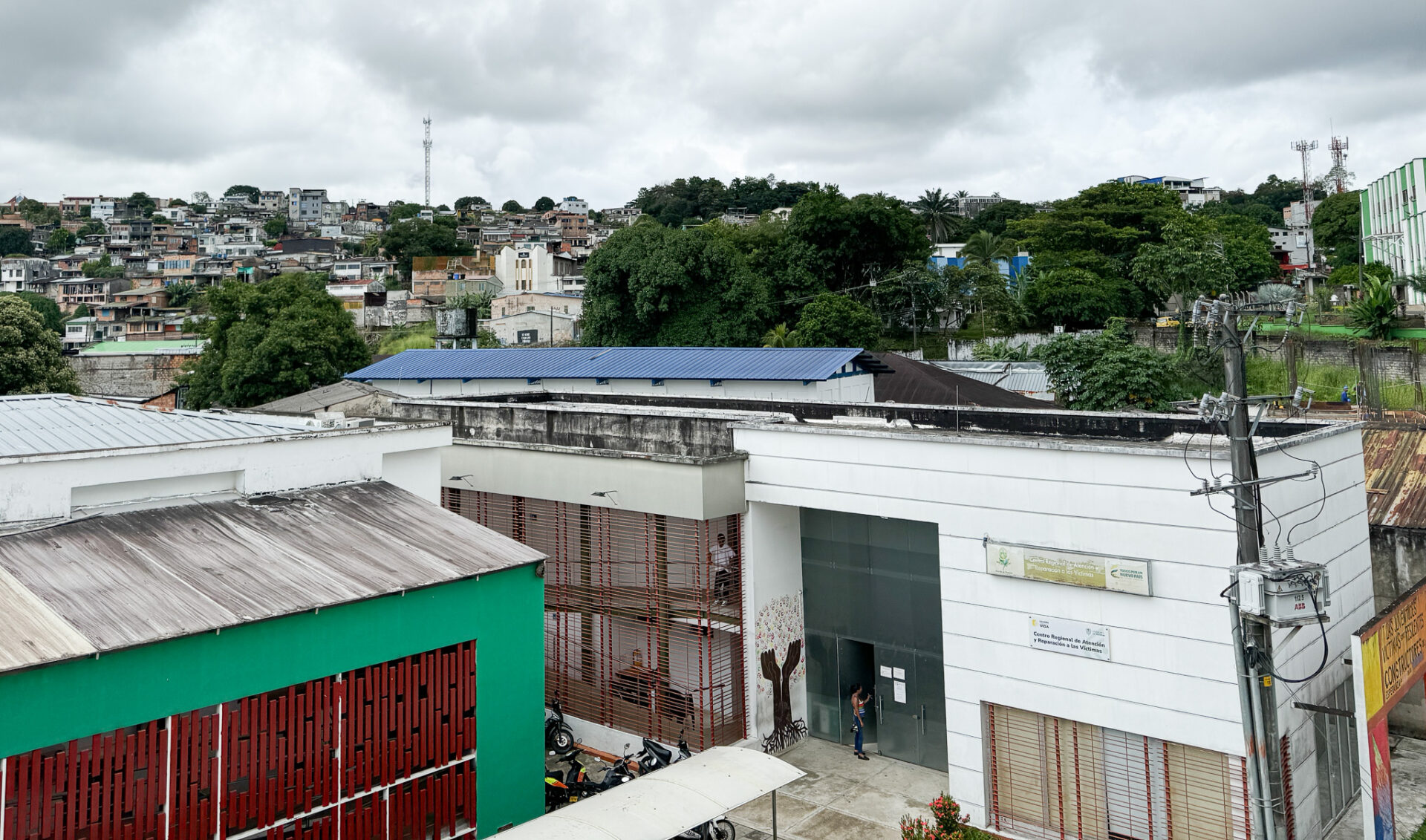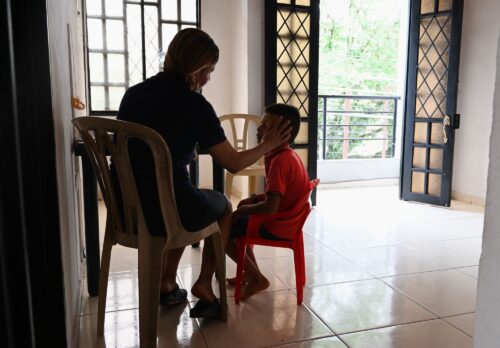
“More than just a Roof:” Shelter Support in Colombia Provides Self-Reliance
In December, Colombia will mark three consecutive years in which 250,000 people are newly displaced. Despite the 2016 Peace Agreement between the Colombian government and the largest armed guerrilla group in the country, conflict has continued, especially in rural areas.
Recent trends show that Colombians fleeing their homes to escape violence are seeking safety in urban areas of all sizes, ranging from major cities like Bogotá to small municipalities. As newly displaced people arrive, mid-sized cities like Popayán and Florencia are struggling to provide enough resources for critical humanitarian interventions like food assistance and housing.
Without assistance, safe housing is largely inaccessible to displaced people due to affordability and resistance from landlords. Since many displaced Colombians are impoverished and unlikely to return home in the short term, families often end up living in illegal settlements, crowded conditions, or dangerous situations.
But shelter is a nonnegotiable part of humanitarian assistance. Shelter is more than a roof—it provides safety, but also a sense of stability. Emergency responses must also include a path toward stability for families who are at risk.
Rental support is one such solution that builds personal stability and lessens families’ dependence on other forms of humanitarian aid. Blumont’s Closing Gaps program has been doing this in Colombia with success. Providing rental payments for displaced individuals gets them into housing that is available in the market, which also props up the local economy.

These rental support initiatives have been shown to be scalable, economical, and efficient. When people have secure housing, they are also in a better position to focus on other priorities that will help them move forward. Positive impacts from stable housing have been reported in health, livelihoods, education, disaster risk reduction, and more.
Closing Gaps, funded by the U.S. Agency for International Development’s Bureau for Humanitarian Assistance (USAID/BHA) since 2008, assists Colombians affected by conflict by working alongside government services to fill humanitarian needs and build local capacity. The program’s layered support includes connecting displaced people with local services and distributing food assistance, in addition to providing rental support for the most vulnerable families. These families are identified based on risk for gender-based violence and extreme poverty and receive six months of rental payments intended to help them establish a foundation to build on.
An impact evaluation conducted this year in coordination with USAID/BHA and the Humanitarian Assistance Evidence Cycle assessed the effectiveness of rental support as part of Closing Gaps’ comprehensive interventions. The study tracked 101 families (women-headed households in three mid-sized cities) as they enrolled in the program, found housing based on established safety and quality criteria, and settled into a new place. The results, based on a comparison of households receiving all Closing Gaps services except rental assistance, show a clear opportunity for durable solutions.
Data shows that rental support provided these displaced families with more than just a roof. Six months after rental support ended, two-thirds of these families could continue paying rent on their own, finding their footing and becoming self-reliant. At the same time, the families felt safer with a greater sense of belonging in their communities, while increasing their incomes, wellbeing, and peace of mind.
Most importantly, the majority no longer needed humanitarian assistance. With a safe place to live and the bandwidth to focus on the future—whether that meant livelihood investments or educational training—people were better prepared to manage the day-to-day challenges of life.
As humanitarians, economists, stabilization experts, and others look for solutions to increasing global displacement, we should consider shelter interventions that build self-reliance. Humanitarian assistance is vital in these situations, but we can—and should—deliver aid while thinking ahead so support today can open a path to stability tomorrow.
We have an opportunity to do things differently. Rental support, tied with initial humanitarian assistance, is scalable and economical, making it an adaptable solution for many situations. It also puts people at the center of their own decision-making, taking away the stressors of where they’ll sleep at night and giving them hope for the future.
—
About the Authors
Juan Pablo Franco is Blumont’s country director for Colombia and oversees the USAID/Bureau for Humanitarian Assistance-funded Closing Gaps program.
Desiree Halpern is a communications manager at Blumont and co-chair for the InterAction Shelter and Settlements Working Group.








